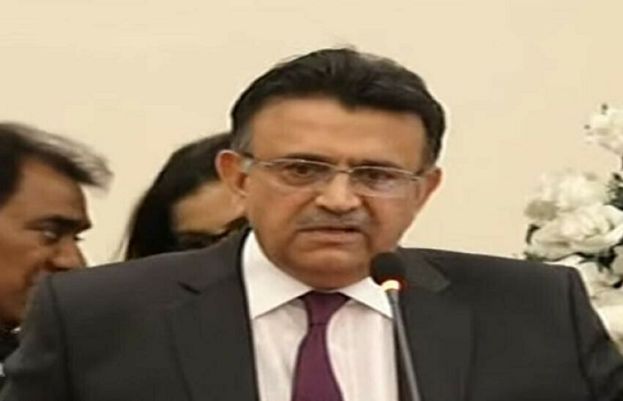Chief Justice of Pakistan Umar Ata Bandial on Sunday said that the judges of the Supreme Court could not “blink” their eyes if the Constitution mandated polls within 90 days of an assembly’s dissolution, adding that it was their duty to say that.
Speaking at a conference on minority rights in Lahore on Sunday, the chief justice said: “When it comes to constitutional enforcement we must not blink our eyes. If it says 90 days for holding elections, it is our duty to say that and not our choice, instead of finding a reason why we should avoid saying that.”
The chief justice said the matter was being called a “controversy”. “I’m sorry, I’m not worthy of controversy, I’m a very humble person. Please don’t say that you support us. I’m just one of the members of the Supreme Court. You must support the Supreme Court if you stand up for the law and the Constitution and not [for] any individual,” he added.
The chief justice said the Supreme Court and its judges had no existence individually but “as a unit [and] as a constitutional organ and that is how we function”.
“If a review is filed then it will be heard because no judgement is binding unless it becomes final. But if a judgement is not challenged then it becomes final so let’s see what happens now,” the chief justice said.
CJP Bandial said he was “optimistic” that the nation’s leaders, institutions and people were all “committed to the Constitution”.
Referring to the negotiations between the government and the PTI, he said the apex court was informed that they had not concluded yet.
“We have nothing to do with that but at least they are conscious that they have a duty to comply [with] the Constitution and we are there to support that effort otherwise our judgement is there, it has a force of its own, it may not be implemented today but it will last to the test of time and shall be implemented tomorrow,” the chief justice pointed out.
CJP Bandial’s speech also addressed minority rights. He said the Constitution assured freedom to profess religion and to manage religious institutions subject to public order and morality.
“Our Constitution in Article 21 safeguards against the taxation of any particular religion. So for no particular reason can other religions be taxed,” he said. “Article 22 safeguards educational institutions in respect of religion. No religious instruction or ceremony in any educational institution other than one’s own religion.”
The chief justice added that no citizen could be denied admission on the grounds of caste, race, religion, place, or birth to educational institutions which received aid from public revenues.
Polls in 90 days a duty not a choice, says CJP Umar Ata Bandial

